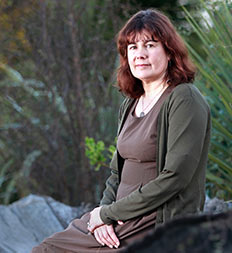 It's important for New Zealanders to better understand the interaction between tourism, community and environmental and social/cultural values.
It's important for New Zealanders to better understand the interaction between tourism, community and environmental and social/cultural values.
Tourism may be vital to New Zealand's economy, but there is a delicate balance between meeting tourist expectations while benefitting the community, maintaining its wellbeing, and staying true to its cultural values. And it goes without saying this needs to be done without damaging the natural environment the visitors want to experience.
New Zealand is lagging in knowledge of the impacts of ecotourism, despite its importance, compared with other similar countries.
However, a range of research projects by University of Otago Business School researchers and PhD students has shown it's possible to manage the dynamic between community, infrastructure and tourists. They key is building in-depth understanding of the perspectives of visitors and the aspirations of the communities, and ensuring resilience.
Through its Centre for Recreation Research, the Business School collaborates with the recreation industry on tourism and recreation research in natural and wilderness areas both in New Zealand and overseas.
Centre Co-Director Anna Thompson-Carr has investigated nature-based eco-tourism here, profiling visitors to New Zealand ecotourism operations. She has looked at how cultural identity influences tourism development, contributed to publications on Indigenous Tourism and Mountaineering Tourism, and collaborated on research exploring cultural dissonance and indigenous peoples with Canadian researchers. She has also studied Māori owned nature tourism businesses, and is currently exploring the role of Māori business networks.
Whether it is addressing management issues relating to cycleways, dark-sky tourism, wellness or agri-tourism, she believes research has a growing role in helping manage sustainable tourism.
“There is much we can contribute to understanding what we need to do to make New Zealand's visitors better aware of our expectations around sustainable behaviours, while understanding their requirements, and the perspectives and values they bring from their own country. Such knowledge assists policy makers, and the tourism industry.
“For example, more can be done to better understand the impacts and potential management options on the current contentious issue of waste management, particularly around freedom camping. Dumping rubbish and human waste is a rapidly increasing problem for many New Zealand communities, while there are also cultural sensitivities of managing human waste on sacred land, Mt Tongariro being one example. It would be good to see more research on this.”
Recent publications:
Musa, G., Higham, J. and A. Thompson-Carr (eds.) (2015) Mountaineering Tourism, Contemporary Geographies of Lesisure, Tourism and Mobilities Series, Routledge: Oxon.
M. Mostafhanazad, R. Norum, E. Shelton and A.Thompson-Carr (eds.) (2016), "Political Ecology of Tourism: Communities, Power and the Environment", Routledge Contemporary Geographies of Leisure, Tourism and Mobilities Series.







